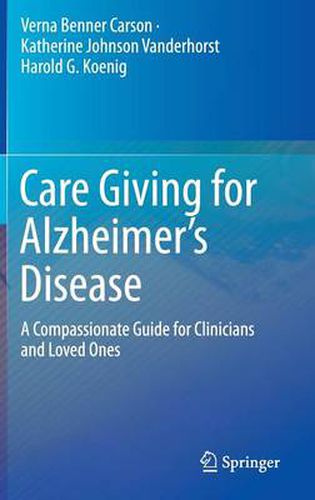Readings Newsletter
Become a Readings Member to make your shopping experience even easier.
Sign in or sign up for free!
You’re not far away from qualifying for FREE standard shipping within Australia
You’ve qualified for FREE standard shipping within Australia
The cart is loading…






This title is printed to order. This book may have been self-published. If so, we cannot guarantee the quality of the content. In the main most books will have gone through the editing process however some may not. We therefore suggest that you be aware of this before ordering this book. If in doubt check either the author or publisher’s details as we are unable to accept any returns unless they are faulty. Please contact us if you have any questions.
Veteran clinicians offer a unique framework for understanding the psychological origins of behaviors typical of Alzheimer’s and other dementias, and for providing appropriate care for patients as they decline. Guidelines are rooted in the theory of retrogenesis in dementia–that those with the condition regress in stages toward infancy–as well as knowledge of associated brain damage. The objective is to meet patients where they are developmentally to best be able to address the tasks of their daily lives, from eating and toileting to preventing falls and wandering. This accessible information gives readers a platform for creating strategies that are respectful, sensitive, and tailored to individual needs, thus avoiding problems that result when care is ineffective or counterproductive.
Featured in the coverage:
Abilities and disabilities during the different stages of Alzheimer’s disease. Strategies for keeping the patient’s finances safe. Pain in those with dementia, and why it is frequently ignored.
Help! I’ve lost my mother and can’t find her!
Sexuality and intimacy in persons with dementia. Instructive vignettes of successful caring interventions.
Given the projected numbers of individuals expected to develop dementing conditions, Care Giving for Alzheimer’s Disease will find immediate interest among clinical psychologists, health psychologists, psychiatrists, social
workers, and primary care physicians.
$9.00 standard shipping within Australia
FREE standard shipping within Australia for orders over $100.00
Express & International shipping calculated at checkout
This title is printed to order. This book may have been self-published. If so, we cannot guarantee the quality of the content. In the main most books will have gone through the editing process however some may not. We therefore suggest that you be aware of this before ordering this book. If in doubt check either the author or publisher’s details as we are unable to accept any returns unless they are faulty. Please contact us if you have any questions.
Veteran clinicians offer a unique framework for understanding the psychological origins of behaviors typical of Alzheimer’s and other dementias, and for providing appropriate care for patients as they decline. Guidelines are rooted in the theory of retrogenesis in dementia–that those with the condition regress in stages toward infancy–as well as knowledge of associated brain damage. The objective is to meet patients where they are developmentally to best be able to address the tasks of their daily lives, from eating and toileting to preventing falls and wandering. This accessible information gives readers a platform for creating strategies that are respectful, sensitive, and tailored to individual needs, thus avoiding problems that result when care is ineffective or counterproductive.
Featured in the coverage:
Abilities and disabilities during the different stages of Alzheimer’s disease. Strategies for keeping the patient’s finances safe. Pain in those with dementia, and why it is frequently ignored.
Help! I’ve lost my mother and can’t find her!
Sexuality and intimacy in persons with dementia. Instructive vignettes of successful caring interventions.
Given the projected numbers of individuals expected to develop dementing conditions, Care Giving for Alzheimer’s Disease will find immediate interest among clinical psychologists, health psychologists, psychiatrists, social
workers, and primary care physicians.